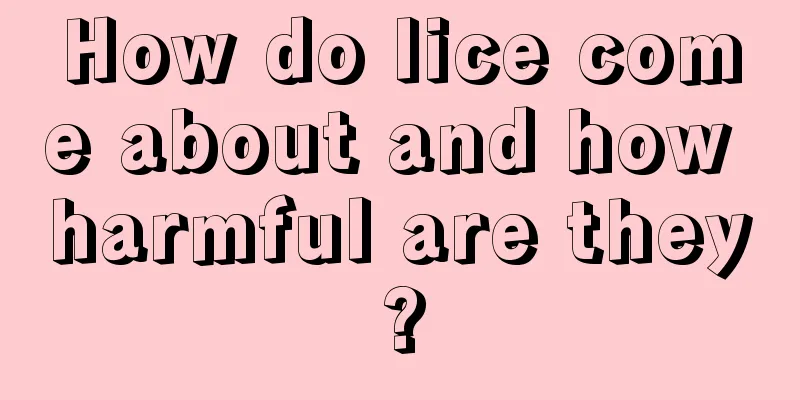Interpersonal phobia

|
In fact, in modern society, due to the development of the Internet and transportation technology, people need to communicate more, so interpersonal communication has gradually become a great science. However, there are some people who are not good at communicating with others, and even feel fear of interacting with others. This is interpersonal phobia, which has a great impact on daily life. So how to treat interpersonal phobia? The inner pain, shame, self-denial, and even self-hatred caused by interpersonal phobia are very shocking! People with interpersonal phobia feel that they are imperfect, ridiculous, and funny in the eyes of others. They can even read the shame, meanness, and morbidity in their hearts from the eyes of others, and regard the normal actions, sounds, and expressions of others as disgust and contempt for themselves. The person standing opposite to you is unaware of it, and the true meaning of communication has disappeared. He objectively becomes a mirror that exposes himself. It is almost an unsolvable psychological dilemma for a person to be excluded from his own life. This dilemma will stimulate a strong neurotic resistance, accompanied by obvious anxiety, fear, blushing, sweating, agitation, and even escape. People with interpersonal phobia have a transcendent, perfect, and authoritative self in their hearts. They use strict "musts" to control themselves. When there is the slightest imperfection in communication, a strong sense of self-denial, derogation, and condemnation arises spontaneously. In addition, interpersonal fear has a deeper meaning. Usually, smart, sensitive, and somewhat neurotic people are prone to fall into such dilemmas, and these people happen to be creative people. Just as a bee colony only needs one queen bee, natural selection will eliminate those bees that have the potential to become queen bee early on. Neurotic resistance is a shortcut to self-destruction. Excellent people become mediocre and lose their competitiveness after being tortured in this way. 1. Clarify what you need in your relationships If a person is overly sensitive to something, it means that he has high demands on it and at the same time he is highly anxious about not getting what he wants. In other words, what a person feels nervous about means he cares about it particularly. Once you have clarified the objects and contents of your fear in interpersonal relationships, then you can understand them in reverse and realize what you need in interpersonal relationships. For example, if you are afraid of performing badly in front of others, it means that you have the desire to express yourself and want to show yourself; if you are afraid that others will blame you, it means that you need others' approval and acceptance. As the saying goes: If you have no desire, you have no asking; if you have no asking, you have no fear. The purpose of clarifying your needs is to give you a sense of direction in your relationships. 2. Acknowledge and confront People who are interpersonally fearful are more aware of the feeling of being controlled due to tension in interpersonal relationships, as well as their behavioral tendency to want to escape, but they completely ignore their positive tendency of wanting to show themselves and be liked by others. The problem is that, influenced by his (her) contradictory personality and ideas, he (she) feels that the idea of "having a desire to show off" is a bad idea. Therefore, he (she) will deny his (her) sense of incompetence in interpersonal performance, and even deny his (her) desire to show off and express himself (herself). One of the strategies for dealing with interpersonal tension is to acknowledge that you have a desire to express yourself, a longing to be appreciated and accepted by others, a fear of being attacked and a sense of inferiority, and a need to protect your self-esteem or face. When the hidden pain of defending against inferiority is exposed, we will be able to face it, see it clearly, and heal it accurately. The best remedy is to acknowledge the need and make small efforts to realize it. 3. Be a participant Two participatory approaches to dealing with interpersonal tension: ① Think about what you may be most afraid of in interpersonal relationships, and try to do inner simulation training: If what you fear most is "sweating all over and having a blank mind", then plan in your mind "only do one thing at that time, which is to sit down and see how much sweat I can sweat, and imagine the blood flowing to my brain". ② Prefer to be a listener or a spectator, which is a “weak position” that makes one feel safe in interpersonal relationships. When you are among a crowd, all you need to do is listen attentively or watch others quietly. Because most people have the desire to express themselves, they particularly need and like someone to listen to them, watch them, and appreciate them. In this way, you can not only avoid being attacked and reduce the worry of performing poorly, but also realize your need for others to like and accept you. 4. Separate from the past and stand in the present As analyzed above, interpersonal fear mostly stems from the sensory memory of trauma and anger that people have experienced in the past, and forms defenses out of fear of being hurt again, such as escape, self-denial, and blame. To reduce your fear of reality, you need to separate your past emotional memories again and again in an adult manner, and you need to honestly mourn the sadness caused by the denial of the past. The specific approach is still to try to simulate it in your mind: clearly distinguish between two relationships, one is your past relationship of "the timid child me - the adult who protects the child"; the other is your current relationship of "the adult me who protects the child - others". When you feel nervous and fearful, it only means that your "past relationship" is flashing back. You might as well let it flash for a while, and then respectfully return to the reality - the adult who protects the child. This is your current role. In fact, behind your fear of interpersonal relationships there is a wronged child who dares not speak out and expects you to accept all of her. 5. Harmonize your relationship with yourself Interpersonal fear, like all situations where it is difficult to get along with others, is caused by the person not yet dealing with their dysfunctional inner relationships. Coordinating inner relationships means that you as the subject must begin to re-examine yourself and accept many of the unsatisfactory parts of yourself. If you still hate others for not paying enough attention to you or caring about you from time to time, it means that you also hate yourself for being unworthy of care. You need to first accept that you "may not" be unloved; in any aspect that you think is demanding of yourself or others, first be less demanding of yourself. This is reflected in your ability to allow yourself to occasionally have a bad mood, perform poorly, procrastinate, blame others... It is also reflected in your ability to recognize your own strengths and accept your own weaknesses. |
>>: How to remove the smell from curtains
Recommend
What tests can detect nasopharyngeal cancer
There are many original examination methods. Naso...
Are there any dangers of hamartoma
Are there any harms of hamartoma? As a patient wi...
How to recover from bruised eyes
Cyanosis is a symptom that may occur in many part...
How to relieve nasal congestion by using a fan
When the weather is hot, electric fans become a n...
What are the dangers of eating fried foods for a week
Nowadays, fried foods are very popular, especiall...
How to choose a specialized hospital for uterine cancer
Everyone knows that uterine cancer is a stubborn ...
Early symptoms of ovarian cancer should not be ignored
The incidence of ovarian cancer ranks third among...
How to treat chronic stomach problems
Of course, when you are young and healthy, that i...
What should I do if my puppy’s teeth are scratched and bleeding?
Dog bites need to be treated promptly because dog...
Are silver bracelets good for the body and what to pay attention to
Many of our young friends like to wear gold and s...
How to treat ascites?
The occurrence of ascites actually has a great im...
How to treat tinnitus? These methods work best!
Tinnitus has a huge impact on life. Once discover...
What are the symptoms of viral enteritis?
Viral diseases cause a lot of trouble and have a ...
What to do when teething hurts? 5 ways to relieve it
The growth of teeth for a newborn baby is the fir...
Professional knowledge of gastrointestinal care
The stomach and intestines are very important to ...









